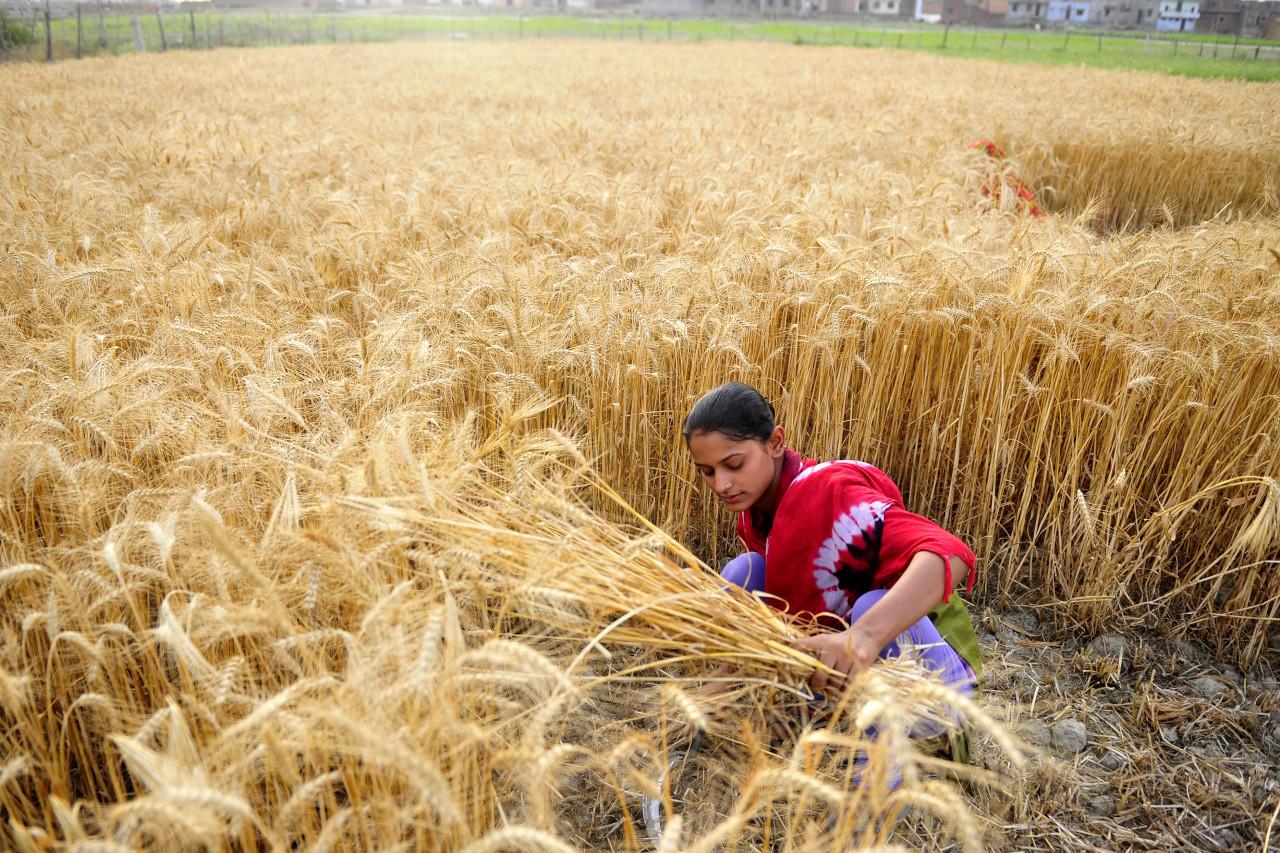Farmers Hit: Opposition Lambasts Govt For "Anti-National" Move to Scrap Wheat Import Duty

NEW DELHI: For the second time this year, the BJP-led NDA government in the Centre has decided to reduce import duty on wheat, a move that is being perceived by many as a part of a series of pro trader-lobby decisions being taken by the Cabinet since the BJP government came to power in May 2014.
Earlier, on September 23 this year, import duty on wheat was slashed from 25 per cent to 10 per cent. This time, however, the duty has been completely scrapped to nil.
The measure comes amidst ongoing protests against the demonetization scheme by the government that is believed to have adversely affected farmers who are supposed to buy seeds and resources for the upcoming kharif season. Opposition parties including the Congress, Bahujan Samaj Party (BSP), Janta Dal (United) (JDU), Telangana Rytha Sangham (TRS) and the Left have unanimously voiced their concerns against the development.
On Friday, the Rajya Sabha faced several adjournments with opposition leaders demanding a roll-back of the “anti-farmer” decision. Taking a dig at the rising nationalist rhetoric from the BJP government, Sitaram Yechury of Communist Party of India( Marxist) went on to call this decision “anti-national.” Ram Vilas Paswan, Food Minister, and a leader of theLokjanshakti Party tried to assuage the House by declaring that the “measure was temporary” and has been implemented to “check inflation.”
Farmer Unions across the country have been protesting against the move which comes after government’s attempt to pass amendments to Land Acquisition Act the previous year that aimed to ease the acquiring of land by corporations. Massive protests in the nation’s capital had led to the with drawl of amendments. Farmer groups have threatened to escalate the protests.
The Bharatiya Kisan Sangh (BKS), an outfit of the RSS has declared that they do not support the move but see no reasons for the protest: “Farmers shall not be affected immediately, for it is sowing season now. We shall review the impact during harvesting period, and request the government to raise rates of import accordingly.”
Alliance for Sustainable and Holistic Agriculture (ASHA), an informal network of more than 400 agricultural organisations drawn from 20 states of India, feels otherwise. Usha S, a part of the 12-member steering group of national convenors of the organisation expressed her dissatisfaction with the government’s decision.
“On one hand the government wants the farmers to increase the yield and use technology, but on the other, the import duties have come down to zero. First, it happened with the pulses, then with oilseeds, and now with wheat…it’s a brazen attempt to weaken the livelihood of millions of people of the country. The government has no serious justification for this.”
The minimum support prices (MSPs) have been running low for the last few years, and lesser reach of government’s purchasing centres means that farmers shall have to resort to distress sale, thereby lowering incomes significantly during the rabi season. The Kirti Kisan Union, All India Kisan Union, All India Kisan Sabha and Bharat Krishak Samaj are spearheading the voices dissenting the zero import duty decision.
Dr G V Ramanjaneyulu, Director of Centre for Sustainable Agriculture in Hyderabad and an agricultural scientist,expressed his anguish and heavily criticised the zero duty decision in an interview with The Citizen over the phone: “The data already shows that the sowing have come down, on top of this, such rulings which are pro-MNC and pro-trade lobby is going to be a disaster for poor farmers.” He expressed his certainty that the government is “working for the rich businesses” and that “protections between the states that help the farmers are in peril.”
“It is a frivolous decision by all means. I fail to realise what the government is up to,” he remarked.



